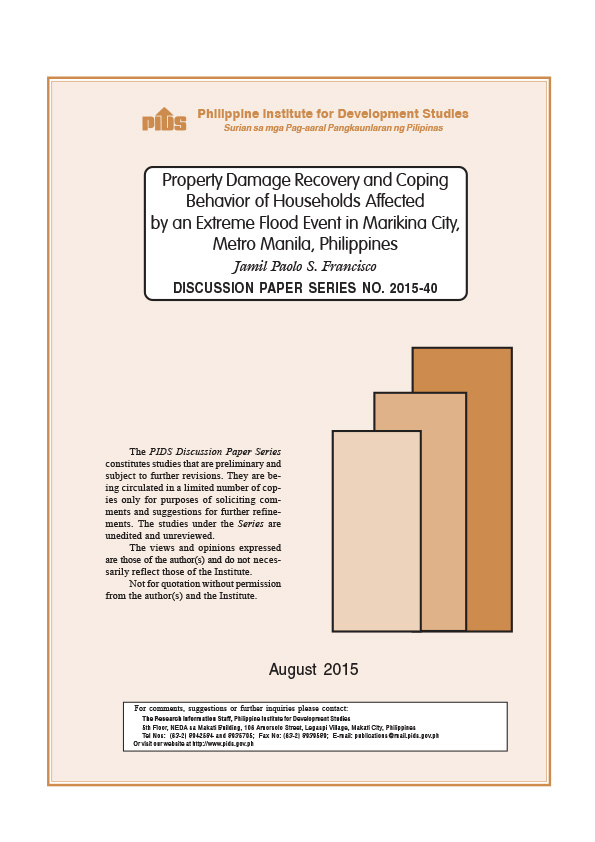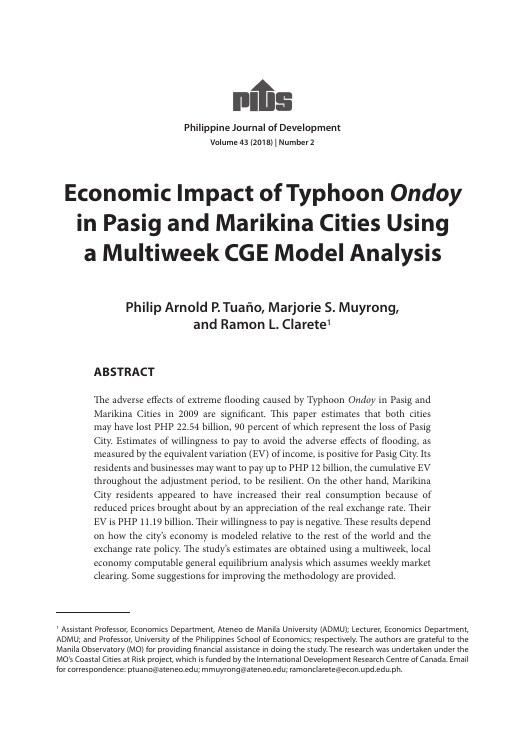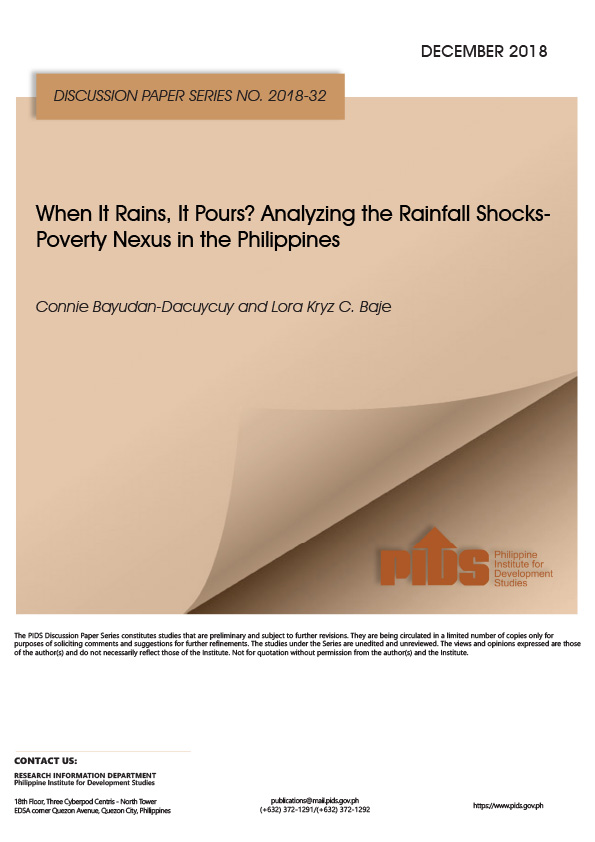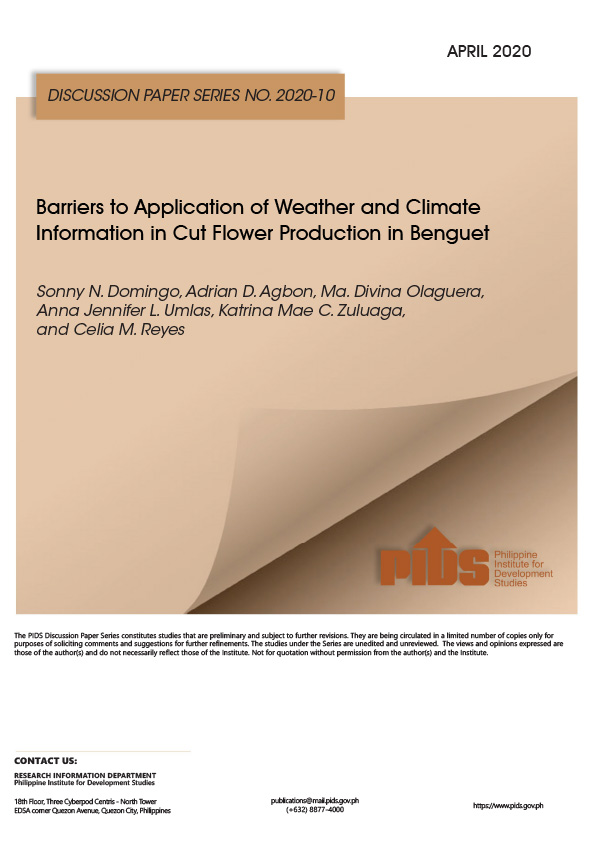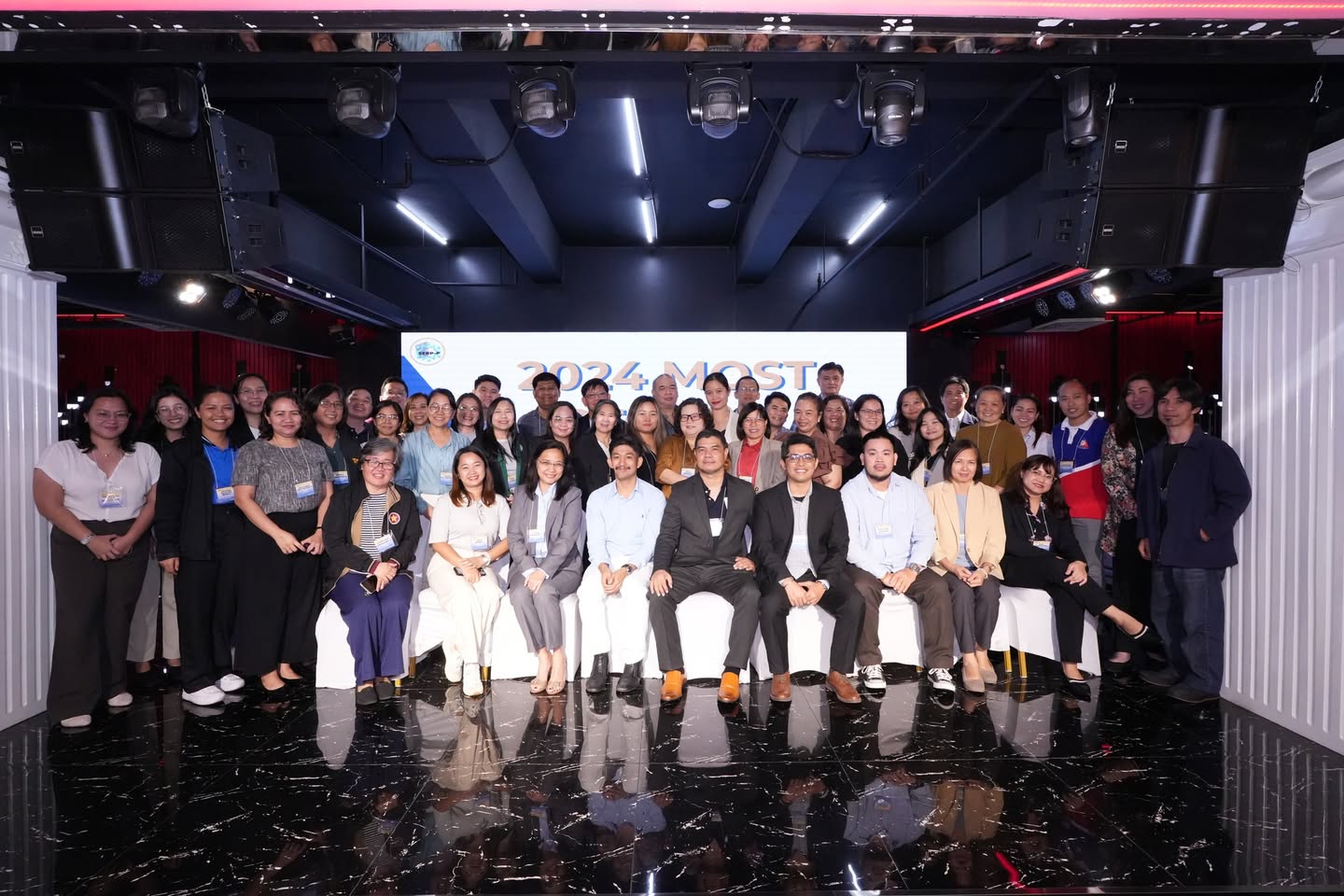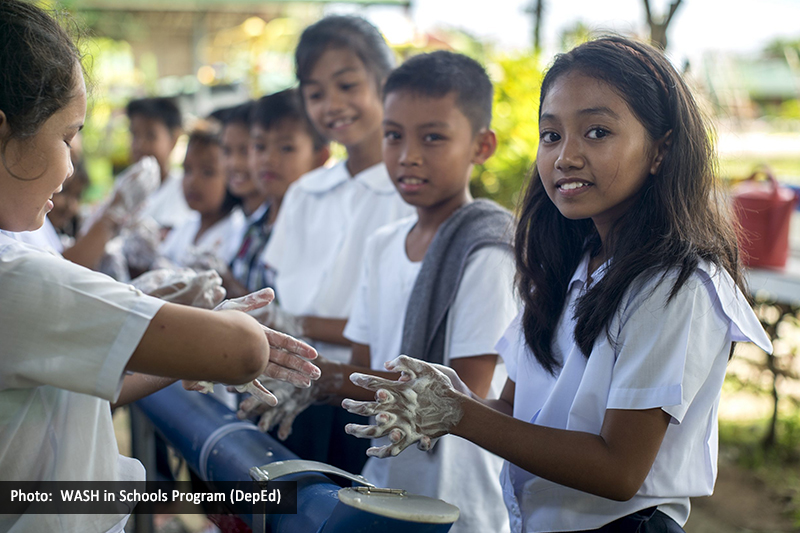This study identifies the factors influencing household choice of coping strategy to an extreme flood event in Marikina City in the National Capital Region of the Philippines, as well as household recovery after the event, measured in terms of the length of time to repair, rebuild, or replace damaged property. A survey of 400 households was conducted to obtain data. A multinomial logistic model was used to analyze coping strategy choice among three possible alternatives: (1) reactive and short-term anticipatory behavior only, (2) reactive and anticipatory behavior plus general long-term preventive measures, and (3) reactive and anticipatory behavior plus preventive and proactive measures. Results showed that wealth, income, learning from past experience, advice from the media, and people's perceptions/attitudes toward natural disasters had significant influences on household choice. With regard to recovery, household income, access to credit (borrowing), the use of a flood alarm system, access to safe shelter, membership in a community organization, adoption of disaster-specific anticipatory measures, and adoption of general preventive measures significantly reduced the time it took for affected households to recover from property damage. Evacuation, relief aid, type of housing, education, household size, and frequency of flooding in the area did not have significant effects.

